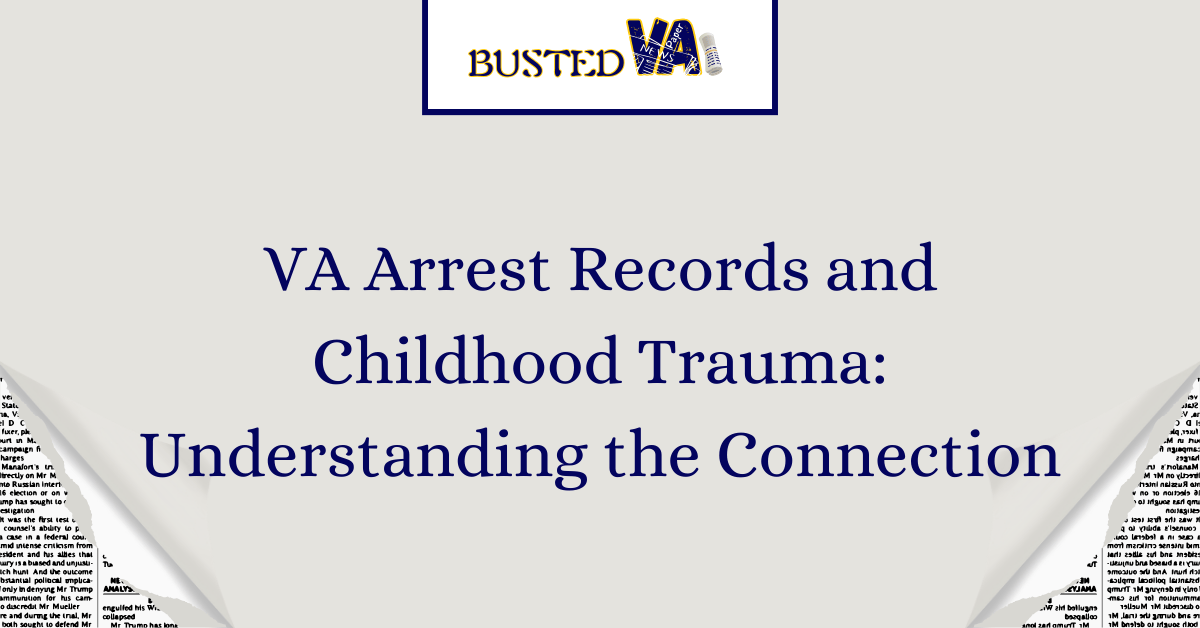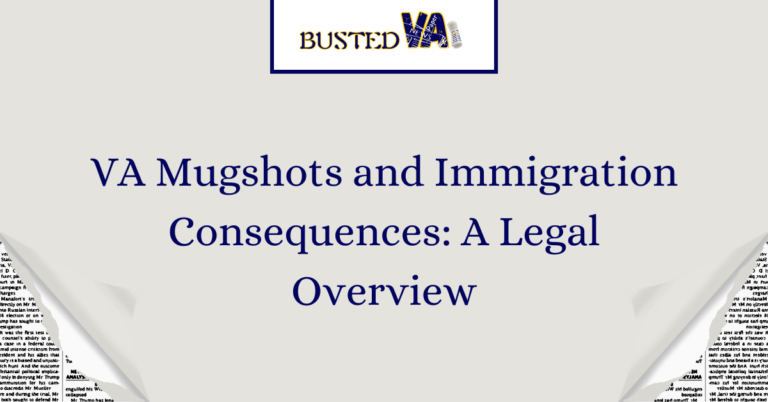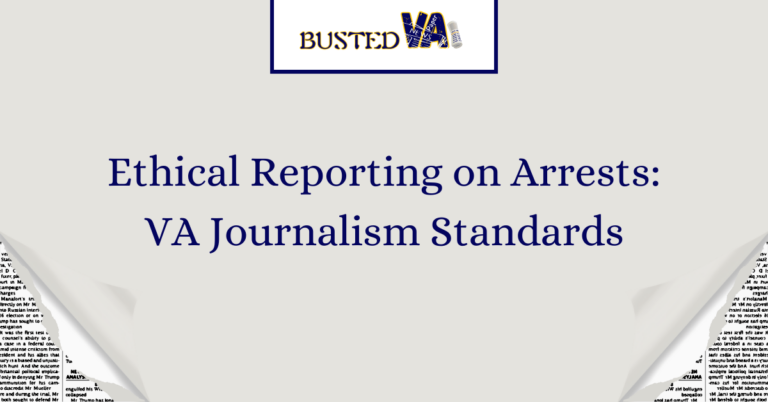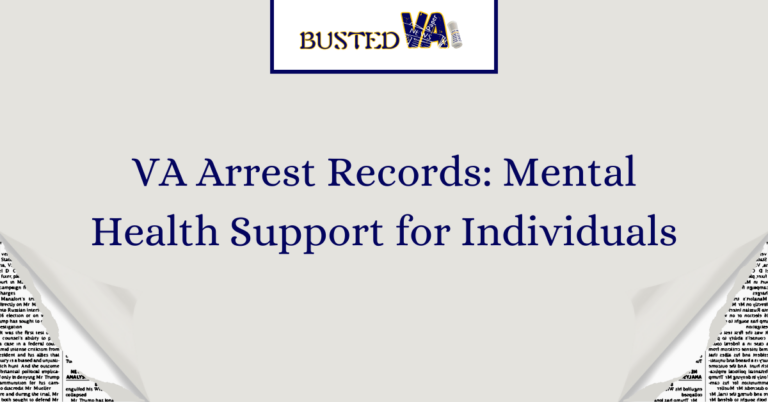VA Arrest Records: Unraveling the Link to Childhood Trauma
In this article, we will explore the fascinating connection between VA arrest records and childhood trauma. It is a topic that has gained increasing attention in recent years as researchers and professionals strive to understand the complex relationship between these two factors.
Childhood trauma can have a profound impact on individuals, shaping their behavior, emotions, and overall well-being. It is not surprising, then, that there is a link between childhood trauma and subsequent involvement with the criminal justice system. By examining VA arrest records and delving into the underlying causes, we can gain valuable insights into this connection and potentially identify ways to prevent or address these issues.
The Impact of Childhood Trauma on Behavior and Well-being
Childhood trauma is a deeply distressing experience that can have long-lasting effects on an individual’s behavior, emotions, and overall well-being. Research has shown that children who experience trauma are more likely to develop behavioral problems, such as aggression or defiance, and struggle with emotional regulation.
Furthermore, the effects of childhood trauma can extend into adulthood, increasing the risk of mental health disorders, substance abuse, and even involvement with the criminal justice system. Understanding the link between childhood trauma and subsequent arrests can provide valuable insights into preventing and addressing these issues.
The Connection Between Childhood Trauma and Criminal Involvement
Studies have consistently found a strong correlation between childhood trauma and an increased likelihood of involvement with the criminal justice system. Individuals who have experienced trauma in their early years are more likely to engage in criminal behavior, such as theft, drug offenses, or violent acts.
There are several reasons why childhood trauma can lead to criminal involvement. Firstly, trauma can impair a child’s ability to form healthy relationships and develop appropriate coping mechanisms. This can result in maladaptive behaviors and a higher susceptibility to peer influence, increasing the likelihood of engaging in delinquent activities.
Examining VA Arrest Records for Insights
The examination of VA arrest records can provide valuable insights into the underlying causes of criminal involvement among individuals who have experienced childhood trauma. By analyzing these records, researchers can identify patterns and risk factors that may contribute to criminal behavior.
For example, a study analyzing VA arrest records found that individuals who experienced childhood trauma were more likely to have a history of substance abuse and mental health issues. This suggests that addressing these underlying factors through targeted interventions and support services could potentially reduce the risk of criminal involvement.
Prevention and Intervention Strategies
Understanding the connection between childhood trauma and criminal involvement allows for the development of effective prevention and intervention strategies. By identifying individuals at risk and providing early support, it is possible to mitigate the negative impact of trauma and reduce the likelihood of future criminal behavior.
One approach is trauma-informed care, which involves creating a safe and supportive environment that recognizes the impact of trauma on individuals. This approach emphasizes empathy, understanding, and the provision of appropriate resources to help individuals heal and develop healthy coping mechanisms.
The Importance of Addressing Childhood Trauma
Addressing childhood trauma is not only crucial for the well-being of individuals but also for the overall health of communities. By understanding the connection between trauma and criminal involvement, we can work towards creating a society that supports and empowers individuals who have experienced adversity in their early years.
Through a comprehensive approach that combines prevention, intervention, and support services, we can break the cycle of trauma and create a brighter future for generations to come.
FAQs
What are the mental health consequences of exposure to VA arrest records on children?
The exposure to arrests within a child’s family can have severe mental health consequences. Studies have shown that witnessing a family member’s arrest can lead to increased anxiety, depression, and post-traumatic stress disorder (PTSD) symptoms. These psychological effects can significantly impact a child’s overall well-being and ability to form healthy relationships.
How do VA arrest records impact educational outcomes for children?
Children who experience or witness arrests within their families often face educational disruptions. The stress and emotional turmoil resulting from these incidents can make it challenging for children to concentrate and excel academically. Consequently, their educational outcomes may be negatively affected, leading to potential long-term consequences.
How do childhood VA arrest records affect long-term life?
The impact of exposure to VA arrest records during childhood can extend well into adulthood, shaping a person’s life trajectory. Research suggests that individuals who have experienced or witnessed arrests within their families are more likely to engage in risky behaviors, struggle with substance abuse, and have difficulties with employment and financial stability.
Addressing childhood trauma from VA arrests?
It is crucial to implement preventive measures and provide support for children who have been exposed to VA arrest records. By offering adequate mental health resources, counseling services, and community programs, we can mitigate the long-term effects of childhood trauma and help these children thrive.
How to support kids with VA arrest records?
Creating awareness about the connection between VA arrest records and childhood trauma is essential for bringing about change. We must engage policymakers, community leaders, and the public to advocate for policies and programs that prioritize the well-being and protection of children who have experienced or witnessed arrests within their families.







